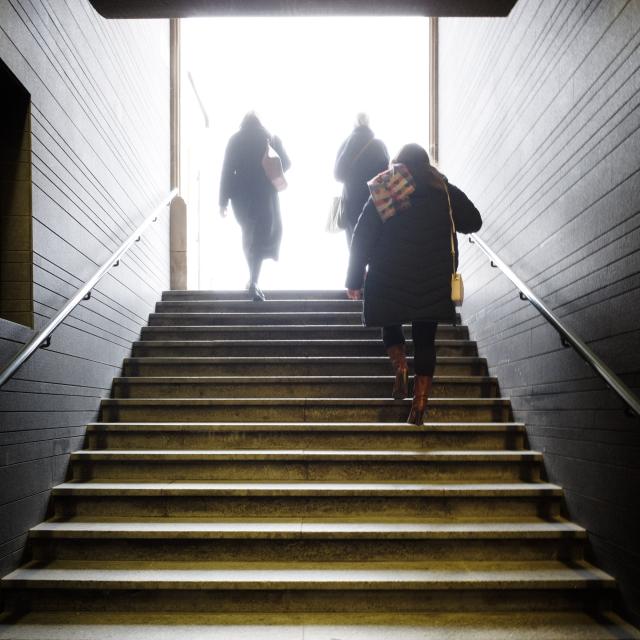The promise of the "middle class"
By Misch Pautsch, Lex Kleren Switch to German for original article
The "middle class": politicians are fighting for it, but none of them want to define it precisely. Most of us see ourselves as part of it. But the closer you look, the more intangible the term becomes. Is it still up to date? Or a romanticised memory of times of economic boom?
When the term "middle class" is mentioned in politics today, there is often a hint of panic: "Relieve the middle class and strengthen purchasing power" promised Prime Minister Luc Frieden (CSV) in the government speech in November 2023. "Aid deep into the middle class", announced Xavier Bettel (DP) a year earlier at the start of the energy crisis tripartite in September 2022. In a Wort interview seven years earlier, Bettel even ventured a pragmatic definition: "The middle class includes those people who earn too much to benefit from aid and yet do not have enough to afford basic necessities." In an opinion piece published in the Wort in 2020, Gilles Roth and Laurent Mosar (both CSV) also see a 'dangerous imbalance' in the now "pack mule of the nation" who, with his "broad hump, pays the lion's share of the growth bill" without "benefiting from his income". Somehow, the broad middle class doesn't seem to be doing as well as it should.
According to sociology professor Dr Louis Chauvel of the University of Luxembourg in a Journal interview, the middle class was historically and until very recently "an extremely attractive term for a long time. For many decades, the middle class epitomised the totality of progress in Europe: Access to pensions, to medical care, educational opportunities and social advancement." According to French Prime Minister Gabriel Attal, it is the "beating heart of society" and both the yardstick and motor for the success of the welfare state. As a result, it exerts an enormous attraction for politicians, says Chauvel: "We keep coming up with the idea of the battle for the 'median voter': whoever convinces the voter right in the centre of society to vote for them has won. The rest follow suit. It was not for nothing that French President Valéry Giscard d'Estaing's book, in which he addressed the population, was entitled Deux Français sur Trois. Even Aristotle called the 'average man' the political ideal." The fact that only landowning men could vote in those days should be ignored – for now.
An outdated idea?
For a long time, belonging to the middle class meant leading a stable, fairly predictable life in which you could be confident of reaching the "major stages of life" – education, job, marriage, buying a house, children, retirement and opening doors for the next generation, Chauvel expands. This is because the promise of social and economic advancement is at least as important to the middle class as the actual economic and social reality. In practical terms, this primarily means access to higher education: "Most children have therefore attended school for at least three years longer than their parents."
You want more? Get access now.
-
One-year subscription€185.00/year
-
Monthly subscription€18.50/month
-
Zukunftsabo for subscribers under the age of 26€120.00/year
Already have an account?
Log in


